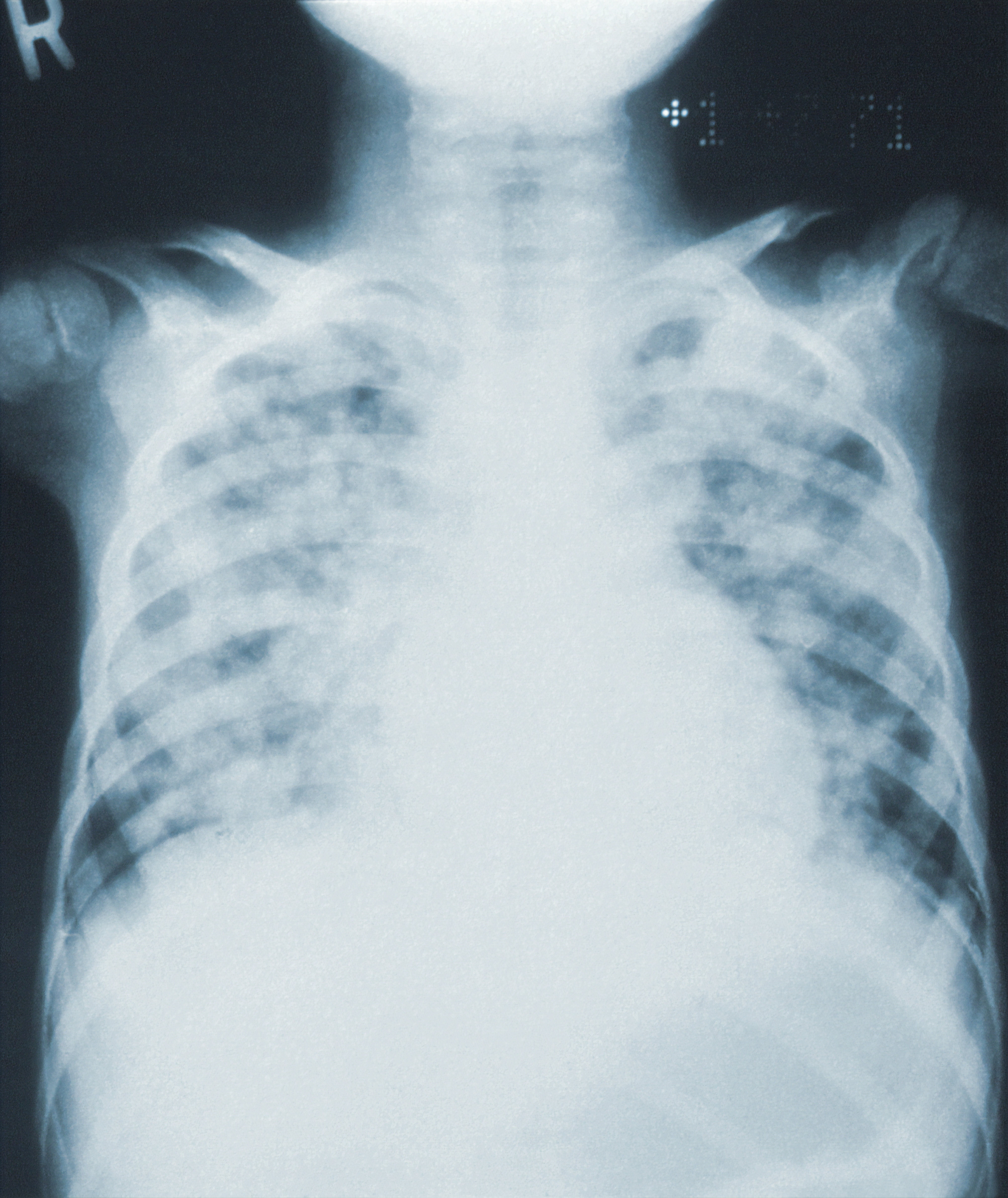
Published 2023-05-10
Keywords
- organizing pneumonia, myelodysplastic syndrome, azacitidine
How to Cite
Copyright (c) 2023 Kelly Ann Hutchinson, Carole-Ann Hébert, Ajay Rajaram, Pierre-Olivier Fiset, Kevin Schwartzman

This work is licensed under a Creative Commons Attribution-NonCommercial-ShareAlike 4.0 International License.
Abstract
Organizing pneumonia (OP) is a lung pathology mainly affecting distal lung structures. Its etiology is often unknown, in which case it is termed cryptogenic organizing pneumonia (COP). Of those cases of OP with an identified cause, the usual culprits include infections, medications, and radiation therapy. In this report, we present the case of a 73-year-old female on azacitidine –a pyrimidine analogue– used for treatment of myelodysplastic syndrome (MDS). The patient presented with fever, productive cough, and pleuritic chest pain. A CT of the chest, a bronchoalveolar lavage and a transthoracic biopsy were performed, and findings were consistent with OP, thought to be induced by azacitidine. The patient was treated with prednisone and subsequently showed significant improvement. Although rare, this case underlines the importance of considering OP in the context of non-resolving pulmonary infiltrates, particularly when there is a potentially relevant exposure, such as azacitidine.
Downloads
References
- Raghu G, Meyer KC. Cryptogenic organising pneumonia: Current understanding of an enigmatic lung disease. Eur Respir Rev. 2021;30(161).
- Alnimer Y, Salah S, Abuqayas B, Alrabi K. Azacitidine-induced cryptogenic organizing pneumonia: A case report and review of the literature. J Med Case Rep [Internet]. 2016;10(1):1–5. Available from: http://dx.doi.org/10.1186/s13256-016-0803-0
- Ma J, Ge Z. Comparison Between Decitabine and Azacitidine for Patients With Acute Myeloid Leukemia and Higher-Risk Myelodysplastic Syndrome: A Systematic Review and Network Meta-Analysis. Front Pharmacol. 2021;12(August).
- San Miguel Amigo L, Franco Osorio R, Mercadal Vilchez S, Martínez-Francés A. Azacitidine adverse effects in patients with myelodysplastic syndromes. Adv Ther. 2011;28(SUPPL. 4):6–11.
- Nguyen P, Safdar J, Mohamed A, Soubani A. Azacitidine-induced pneumonitis and literature review. BMJ Case Rep. 2020;13(10):1–6.
- Lai SW, Huang TC, Ye RH, Wu YY. Necrotizing fasciitis in two patients with myelodysplastic syndrome treated with azacitidine. Eur J Haematol. 2015;94(3):273–6.
- Wolkove N, Baltzan M. Amiodarone pulmonary toxicity Canadian Resp2009.pdf. 2009;16(2):43–8.
- Garcia-Manero G, Gore SD, Cogle C, Ward R, Shi T, MacBeth KJ, et al. Phase I study of oral azacitidine in myelodysplastic syndromes, chronic myelomonocytic leukemia, and acute myeloid leukemia. J Clin Oncol. 2011;29(18):2521–7.
- Romano A, Giallongo C, Cava P La, Parrinello NL, Chiechi A, Vetro C, et al. Proteomic analysis reveals autophagy as pro-survival pathway elicited by long-term exposure with 5-azacitidine in high-risk myelodysplasia. Front Pharmacol. 2017;8(APR):1–10.
- Cabrera S, Rodríguez-Bobadilla C, Vázquez-Morales D, Gaxiola M, Maciel M, Selman M, et al. Identification of Autophagy-related Proteins in Lungs From Hypersensitivity Pneumonitis Patients. J Histochem Cytochem. 2020;68(6):365–76.




